Science
Good research can be reproduced and takes us forward
How does science work? In a discussion, Angelika Kalt, Director of the Swiss National Science Foundation since 2016, and Hugues Abriel, Vice-Rector Research at the University of Bern since 2022, talk about good research, the influence of politics and the responsibility of researchers.
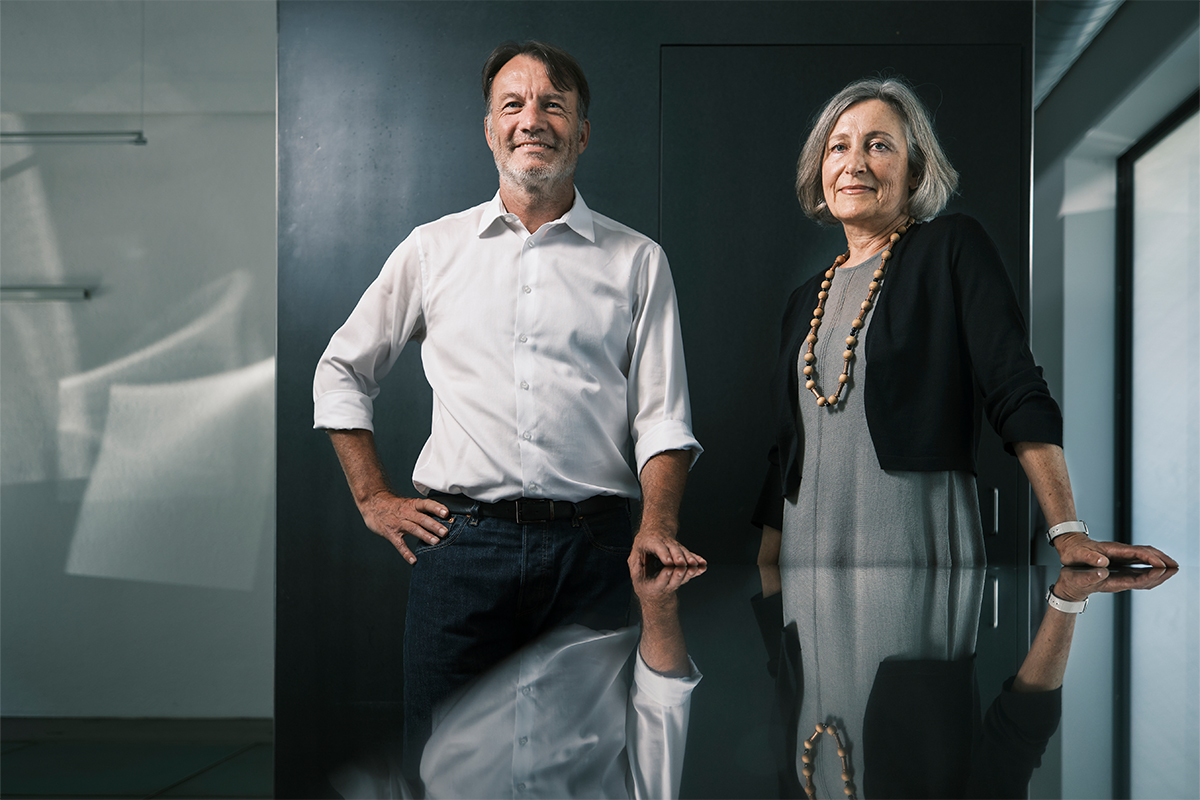
Angelika Kalt: I haven’t really been a scientist since 2009. But what initially brought me to science was curiosity and a great thirst for knowledge. It was always clear to me that I would do something scientific. Ultimately I decided on geology because I was particularly attracted by the aesthetics of the subject along with the scientific aspects themselves. It meant I could deal with beautiful objects of all shapes and sizes – from mountain ridges and individual stones with their minerals to the transparent cut and the atomic structure. And my career in science somehow seemed to keep going and became more and more interesting: After school, I went to university and then did a dissertation.
Hugues Abriel: It was the same for me. First of all there was the curiosity – you’ve got to have that to seriously consider a career in science. Actually I had always focused on the human body, on pharmacology, medicine and biology. I had this urge to understand how we actually work as people, that was always my main motivation. But for me it wasn’t quite so normal that I ended up at university. I come from a family where nobody before me had been to university. But I quickly realized that I could benefit from our education system and learn something that I enjoyed and that would open up opportunities for me
Have research and science and your view thereof changed over the course of your career?Kalt: I think that when you are channeled into the science system on a kind of “track”, you tend to do what is expected of you for a while. But there comes a time when you can distance yourself from it. And when that happened to me there were two things that I observed: On the one hand, the development towards specialization – all researchers effectively have their own niche and everyone is their own best expert. On the other, I started to question the old structures in higher education: Everyone is working towards a professorship and that path is simply not attractive enough anymore. You spend a lot of years being dependent on someone.
Abriel: Yes, there is an incredible amount of work to do and the workload has increased considerably over the last 20 years. Science as a whole has become much more competitive. And still the rules on how a professor is selected or grants are awarded are not transparent. But there are some positive developments. At least today you know who is on the committee at the SNSF and what rules apply when a professorship is awarded. That wasn’t always the case. And there is open science where you make research data more readily available and interdisciplinary collaboration which has almost become the norm now. Furthermore, I feel the importance of research has increased fundamentally.
You mentioned career paths and also the at times lacking transparency in terms of criteria when awarding professorships. Where do you see the greatest need for action?Kalt: Unfortunately, there is still a culture of assuming that the number of times someone has been published is an indication of whether a person is qualified enough for a professorship. That is why there is incredible pressure to publish. The SNSF and lots of institutions of higher education want to change that and they have signed the DORA Declaration specifically for that purpose. At the SNSF we are trying out a new kind of CV, for example, that we ask researchers to submit when they make an application. Then they can’t attach lists of publications anymore but have to select their most important achievements. The aim would be to be judged on this basis alone.
Abriel: It is our aim, and my job, here in Bern to implement the DORA Declaration. That’s hard work. There is some resistance because certain people, particularly those of the older generation, simply do not understand the value added. The younger ones tend to see that differently.
Science funding
The SNSF
Based on a government mandate, the Swiss National Science Foundation (SNSF) supports scientific research in all academic disciplines – from physics to medicine and sociology. At the end of 2021, the SNSF was funding 5700 projects involving more than 20,000 researchers with 882 million Swiss francs, which makes it the leading Swiss institution for promoting scientific research. In close collaboration with higher education institutions and other partners, the SNSF strives to create optimal conditions for the development and international integration of Swiss research. It pays particular attention to the promotion of young researchers. In addition, it accepts evaluation mandates in order to ensure that large Swiss research initiatives funded by third parties deliver the highest scientific quality. (Source: https://www.snf.ch/en)
Is there a pressure to publish everywhere or is that something special to western universities? And who lays down the rules?
Abriel: At the end of the day, it is the international specialist communities that lay down these rules. The system is very much influenced by western universities. For example, I see my African colleagues adopting the system simply because they have the feeling it must be good. And of course there are lots of alternatives for publishing or for how to make a selection at a university.
Kalt: I think you also have to distinguish between quality standards in general and the publication business. The quality standards in general are developed in the specialist communities. It’s true that these are influenced by countries strong in research. The publication business is oriented toward these quality criteria, but depends greatly on the individual publishers and their policies. There are massive differences between good and bad journals.
And what influence does globalization have? Is there more exchange going on than was the case 30 years ago and have the quality standards changed because of that?Kalt: Research has always been very international. I don’t think that research has changed fundamentally because of globalization. But there is some scientific evidence that shows we can solve problems more quickly if people from different cultures work together.
Abriel: But it is noticeable that, in spite of globalization, it is sometimes difficult for expertise from non-western countries to make its way to us. In the case of diseases such as monkeypox and Ebola, there is lots of expertise in African countries on how the diseases could be treated. But it is extremely difficult for colleagues in Africa to show their findings, on the one hand, because the West still has a tendency of looking down on them and, on the other, for quite practical reasons. For example, they don’t have a visa or don’t have the money to take part in a conference in Europe or the US. I think a lot could be done to make science more inclusive.
Kalt: Yes, that is definitely true, and at SNSF we are trying to do that by, for example, concluding agreements with other funding organizations in Africa and South America. International collaboration is primarily aimed at diversifying science and being able to work with all specialists on one problem. Furthermore, international collaboration can also have a political or diplomatic background.
What exactly do you mean by thatKalt: On the one hand, international research collaboration can open doors which are otherwise closed due to political tensions. But looked at from a different point of view, there is a certain amount of protectionism in the world today – because geopolitical fronts are building up. In this context, you don’t want information and knowledge, for example about new methods and technologies, being passed on to bodies that are not part of your political circle of friends.
Is this new protectionism a problem?Kalt: The question is what the priority is – free research in which results can be exchanged across all borders or the security of a state? There is great discussion about what is referred to as dual use, in other words the fact that you can also use scientific results and inventions for war purposes. It’s not an easy problem to solve; things are not always clearly regulated. They are very often the responsibility of the researcher.
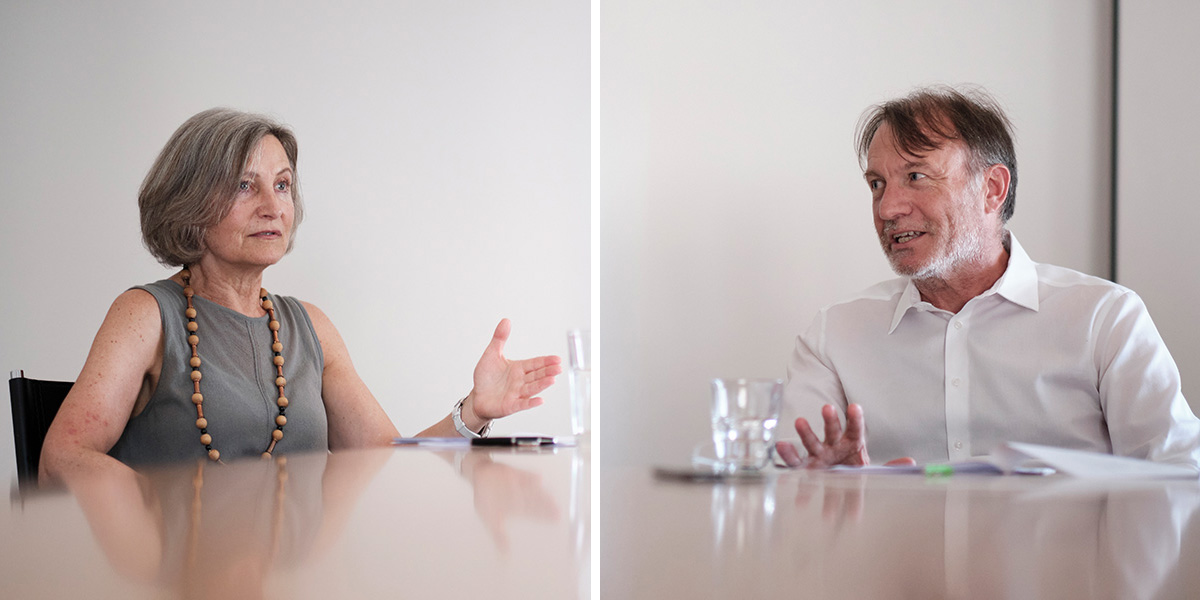
Abriel: Naturally, there are rules for lots of areas, particularly in terms of ethics and scientific integrity. But we are going to have to improve the regulation of the dual use problem. Let me give you an example to demonstrate the problem: the danger of dual use of artificial intelligence to drug discovery. Artificial intelligence can be used to make extremely toxic substances very quickly – 40,000 toxic molecules can be invented within just six hours. This technology can of course be abused.
How do you specify the limits of research?Kalt: It is an interplay of different influences from the scientific community and often ends in a law, an ordinance or a provision. Furthermore, science always builds on what already exists. If you want to launch a research project, you gear it towards research that has already taken place. Then it is usually clear what is ethically justifiable and what is not.
Abriel: Young researchers are often very ambitious and have this incredible curiosity. But when they have to start making applications, they see that the system requires permits for animal experiments, for example, or that you have to detail very precisely what exactly you want to use the money for. We also have responsibility for how the taxpayers’ money is used. The role of the university and the institutions is to create an environment in which researchers can learn about and take on responsibility.
Is it possible to define good research?Kalt: The term excellence is already in the law on the promotion of research and innovation, and at SNSF we have defined this term further. Good research is the kind that takes us as big a step forward as possible – but not at all costs. The question has to be original but also relevant. In other words, the progress that can be achieved has to be significant within the particular field of research. Then it is also a question of which methods you use. You have to be thorough, the methods have to be sustainable, and you have to make your work comprehensible so that the findings can be reproduced.
Abriel: I agree that you can define good research in that way. But I find it difficult to say a result is too “small”. Very often, results are incremental – in other words, you go forward in very small steps. For me, this kind of research is also good research. What I feel is the central issue is that the results can be reproduced. If I know that I can get a result in a lab in Tokyo that I also get in our Swiss lab, then that is good research. These results are solid.
Abriel: And the term “fail” should also be defined more precisely. We very often fail in the lab in the sense that we obtain negative results. We have a hypothesis, test it on two, three components and discover that the results in the lab don’t support the hypothesis. But that doesn’t mean it is wrong. So for us it is not failure, just a negative result. However, we have the problem that we have invested a lot of time and money to get this negative result and it is almost impossible to publish it. That in turn means our colleagues don’t know that they don’t need to do these tests.
Kalt: And then public funding is once more spent to test the same thing. That is a real problem – it is called “publication bias” because a lot more studies with positive results are published. The SNSF thus supports the Swiss Reproducibility Network.
Currently, there are a lot of discussions in the media about fake news and also about fake research: Do these prejudices worry researchers?Kalt: It doesn’t seem to be a problem for the researchers, but for the population. How can they be expected to distinguish what is a trustworthy, professional source and what’s not? I do think that public institutions such as the SNSF and also the institutions of higher education could do more. I’m thinking of advisory centers where people could simply ask: Is that true or not? I think that putting money into science communication would certainly be a worthwhile investment.
How important is science, and academia in general, in Switzerland today?Abriel: There is actually a survey currently being carried out: How much can you trust science? It shows that the level of trust is in fact very high. What I found interesting was that the younger generation had even more trust than the older generation – I hadn’t expected that.
Kalt: Perhaps the positive image science or academia in general enjoys has something to do with the fact that lots of people know that “gray matter” is actually Switzerland’s raw material. And that there cannot be any progress without clever minds and new ideas. Science is the start of so much – there is nothing new without science and academia, no answers to important questions, no start-ups, no specialists – the entire business cycle of Switzerland is very much dependent on science and academia.
Performance review
DORA-Declaration
For a long time, the journal impact factor was considered the most important criterion for assessing the performance of individual researchers. But the citation rate of a journal (journal impact factor) does not allow an accurate estimation of individual achievements. That is why the DORA Declaration recommends a more comprehensive assessment. The evaluation should therefore include not only publication-related factors, but also third-party funding, supervision of young researchers, achievements in teaching, innovation potential, transfer services, scientific integrity, open access and social skills. The DORA Declaration makes the following recommendations: i) Do not use journal-based metrics, such as the journal impact factor, as a surrogate measure of the quality of individual research articles to assess an individual scientist’s contributions, or in hiring, promotion, or funding decisions. ii) Be explicit about the criteria used to reach hiring, tenure, and promotion decisions, clearly highlighting, especially for early-stage investigators, that the scientific content of a paper is much more important than publication metrics or the identity of the journal in which it was published. iii) For the purposes of research assessment, consider the value and impact of all research outputs (including datasets and software) in addition to research publications. The University of Bern has signed the DORA Declaration and has been implementing it since 2016. (Source: www.unibe.ch)
So you think the population understands the significance of science and academia for Switzerland as a business location. What about politics?
Kalt: It is also something that is well understood in today’s political scene. Expenditure for education and research in Switzerland is above average in comparison to Europe. There are of course countries that invest more, such as Israel for example. But you can count them on one hand. I think there is a general awareness that education, research and a well-trained population constitute the motor for a very innovative tertiary sector.
Abriel: Naturally politics understands that we need innovation in general. But politicians normally want to see where research can be used directly. Not all politicians understand how important basic research is. We have to repeat time and again that there would be no applied research without basic research.
Kalt: It is also difficult to explain how research works. It often takes decades for a fundamental discovery to be put into practical use. This dimension of time is something that is not really very well understood. A lot of people think that research should quickly lead to breakthroughs, success, products and services.
How great an influence does politics have on science in Switzerland? Can scientists at university work freely and independently?Abriel: We do have considerable freedom and the universities have been given more autonomy in the past. But naturally there are petitions that come up time and again in parliament, for example on animal experiments, in which politicians would like to influence research methods. But that was always the case. I don’t think this is on the increase.
Kalt: The higher education institutions decide themselves which professorship they want to advertise and the scientists themselves decide what they want to research and with which methods. So there is quite considerable freedom in research. If you look at the Swiss National Science Foundation, a very large part of our budget is reserved for free research where everyone can choose their own topics and methods. There are, however, certain topics for which the Federal Government reserves funding, for example in the national research programs. But that is in no way commissioned research; it is just that money is put aside for specific topics.
Where do you see possibilities for improvement in research?Kalt: The modernization of academic careers would be an important point for me. You have to think about how to keep academic careers attractive. I’m not saying that everyone should be given a permanent position, that is not possible, because higher education lives from change. But you have to think about how to make the system more compatible with what is to be found generally on the labor market. When you start working at a company after writing a dissertation, you get a responsible position or your own project. If you continue with a postdoc position at university, you remain dependent for another few years. And you have to tell doctoral students that it is not second choice going into business.
Abriel: On the contrary, it is our job to educate people for business. It is extremely important for things to move on after a doctorate. As a university we have to do something to ensure we remain attractive. But to do that, we have to talk about structures and rules. There have to be possibilities of getting positions long term. For me, implementing DORA and internationalization are very important. We need to move away from this metric and be more inclusive of the views and ideas of other countries and cultures to further improve the quality of research.
About Hugues Abriel
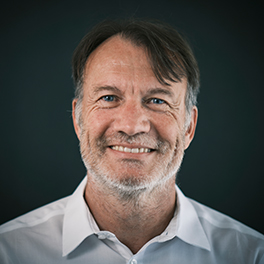
In 2009, Prof. Dr. Hugues Abriel came to the University of Bern from the University of Lausanne and has been full professor of Molecular Medicine since 2016. He is currently Director of NCCR TransCure and furthermore has been Vice-Rector Research since 2022. Kontakt: hugues.abriel@unibe.ch
About Angelika Kalt
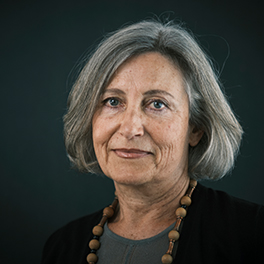
Dr. Angelika Kalt spent eight years as full professor of Petrology and Internal Geodynamics at the University of Neuchâtel. She has been working for the SNSF since 2008 and has been its Director since 2016. Kontakt: angelika.kalt@snf.ch
About the author
Christian Degen is Head of the Communication and Marketing Office at the University of Bern.
New magazine uniFOKUS
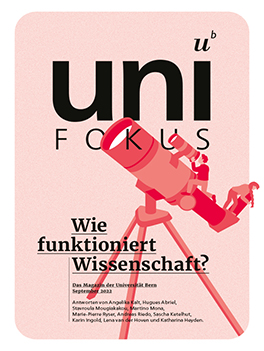
Subscribe free of charge now!
This article first appeared in uniFOKUS, the new University of Bern print magazine. Four times a year, uniFOKUS shows what academia and science are capable of. Thematically, each issue focuses on one specialist area from different points of view and thus aims to bring together as much expertise and as many research results from scientists and other academics at the University of Bern as possible.
The online magazine of the University of Bern
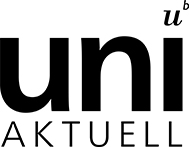
Subscribe to the uniAKTUELL newsletter
The University of Bern conducts cutting-edge research on topics that concern us as a society and shape our future. In uniAKTUELL we show selected examples and introduce you to the people behind them – gripping, multimedia and free of charge.